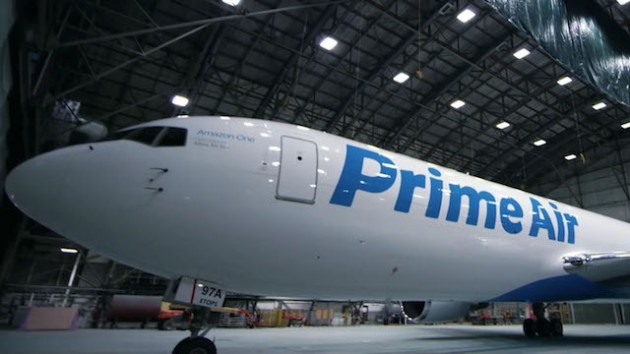
Amazon has been found guilty of shipping dangerous goods by air, and now has to cough up serious cash in penance.
A UK court has ordered Amazon to pay £65,000 in fines after the online retailer tried to transport flammable aerosols and lithium-ion batteries, the BBC reports.
According to the BBC, Amazon attempted the shipments between January 2014 and June 2015, but was caught out after the Royal Mail screened the cargo before they could make it to the airplane. The goods were seized, sparking a court case helmed by the UK’s Civil Aviation Authority (CAA).
“There are important international and domestic restrictions to prohibit the shipping of certain goods that pose a flight safety risk,” Kate Staples, General Counsel for the CAA, is quoted as saying. “These dangerous goods include lithium batteries, which are banned from being transported as mail or cargo on a passenger aircraft unless they are installed in or packed with equipment.”
In a statement, Amazon said: “We ship millions of products every week and are confident in the sophisticated technologies and processes we have developed to detect potential shipping hazards. We are constantly working to further improve and will continue to work with the CAA in this area.”
But Martin Goudie, a prosecutor on the case, said: “Under the right circumstances, the batteries – even new, undamaged batteries – could overheat, potentially causing burns, explosion, or a fire.”
In defence of Amazon, lawyer Stephen Spence told Southwark Crown Court: “We are not talking about Amazon lugging a propane canister onto a plane. They are everyday household items, and one should pay perspective to that.”
This is September’s second major battery controversy, following Samsung’s recent smartphone fiasco. On September 2, Samsung issued a global recall for the new Galaxy Note 7, after an internal investigation uncovered a serious lithium-ion battery flaw that was causing some users’ handsets to spontaneously catch fire. As a result, the USA’s aviation authority has warned against owners of the phone from using or charging their handset in-flight.





